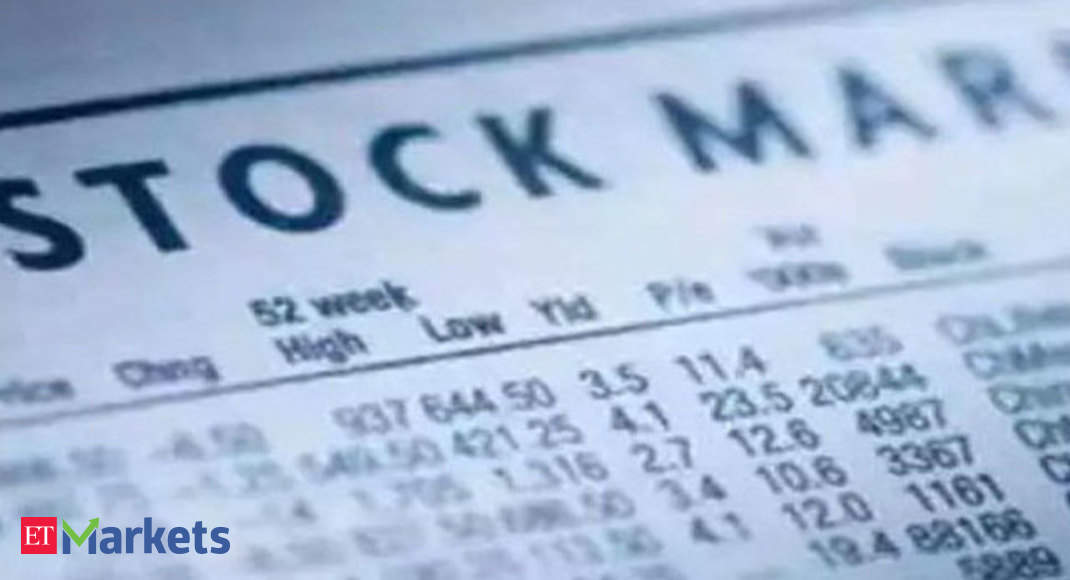There is lots of news about where inflation and interest rates are headed, but the ability of the market to shrug off bad news is quite incredible, isn’t it?
Yes absolutely. Clearly the market has been able to take the Second Covid Wave in stride and very strong liquidity continues to flow into the markets. In addition to that, some of the very short-term high frequency indicators have been pretty much positive and have been in strong momentum. On the whole, the market has essentially been able to take any kind of softness in the June quarter numbers and is willing to look at the second half of this financial year and beyond. The markets probably are more in a medium-term mindset.
If I do a dipstick study, 10 out of 10 folks are saying that this market is not going to sustain; complacency has kicked in and it is better to sit on cash or go short. Everybody wants to participate but nobody has got strong commitment levels. Would you agree?
The market will always have very divergent views and the market is all about that. You are going to have very divergent views, very contradictory opinions but let us look at this very objectivel. Pre-Covid, Nifty was at 12,500 and now we are closer to 16,000. Yes, that is an up move but it is not a huge up move. It is not like the markets are trading at 2X levels of where they were pre-Covid and the outlook for earnings is very. It is quite possible that over the next year or two, we could end-up with 20-25% CAGR in earnings, mainly because of low base effect.
On one hand, there is some bit of caution and scepticism, but on the whole, the market continues to receive net liquidity. In addition to that, there is a fair bit of participation from domestic investors, from retail investors and a combination of all of these things are driving the markets. The momentum in the market or the price levels are pretty much reflective of the earnings growth which companies have been reporting.
It is not that there are no earnings and markets still continue to be high. That significantly differentiates 2021 from 2017. In 2017, we just had a gush of liquidity and the liquidity was backing the hope that things will get better. This time around, it is the earnings first and stock prices in a way are following the earnings growth. So to that extent, I agree that there is some divergence in opinion but the common sense or the consensus trade that I see in the market right now is that there is a very strong back up in terms of earnings and I find that very heartening.
numbers show that the quarter gone by may not be an exciting one for IT companies. Any company goes through two processes – EPS upgrade and PE upgrade. For most of the IT companies including midcap IT companies, the PE upgrade is behind us and an EPS upgrade can be early double digit or mid teens?
I totally agree with that. Clearly the valuations have run up and the multiples have run up quite significantly for the IT services companies. By and large, the big benefit of improving margins are behind them and these margins will normalise over the next year and year-and-a-half. We all know that these are B2B businesses and at some point of time, will shed or give off some of these margins to customers or probably deliver to them more for the same dollar.
For the large cap IT services companies, there is no case for an upside from a pure PE multiple point of view. In terms of earnings growth, these are companies which will sustain a secular growth rate of high single digit in terms of their revenues and any margin expansion or any sustenance of margins will be a factor of currency depreciation. If the currency were to go to 80 to a dollar, there could still be a lot more upside for some of these IT services companies
I believe that a lot of the midcap IT services companies remain interesting plays. Of course, there are a whole bunch of them which have moved up but many of them could become targets of consolidation. PE funds out there are looking to buy into some of these companies. Some of the midcap IT companies have been changing their business models to become SaaS (software as a service) companies and there could still be some bit of earnings momentum for those companies. Then, there are companies which are very specialised providers of digital services.
Within the overall IT pack, look out for companies which are doing R&A, engineering and are shifting and transforming the business models to SaaS model. There are a bunch of companies which could be providing digital services.
There is a bit of uncertainty on economic growth revival. Would it be prudent to bet on the defensives such as pharma, FMCG and IT?
Of the three, I believe that pharma represents one of the best growth opportunities from a short, medium and a long-term perspective. Clearly that continues to be one of our most favourite sectors. Consumer as a space is again very interesting but I still believe that the top rung consumer companies are fairly valued but there are a bunch of smaller consumer companies which look very interesting and within the IT pack, I would probably look out for some of these mid and small-sized firms which have the triggers for transformation or change.
I would say that in pharma both large cap and midcap plays look attractive whereas in consumer and IT stocks, the midcap and smallcap space look very interesting.
What about the auto space? Is the road ahead for some of the two-wheelers still a little bit bumpy?
Within the overall auto space, the OEM space could be a bit of a challenge in the very short term. We have already seen
giving a warning on JLR because of the chip shortage and some of the other supply chain related issues. I believe that the OEM space is going to be a bit more challenged for a quarter or two but I clearly believe that after a bit more correction, they will become attractive from a medium-term perspective.
The space we like the most and which is a good proxy for the auto space is the auto ancillaries space. We believe that they have multiple growth drivers — be it demand from OEMs, be it demand from the replacement market or be it demand from exports. Plus, they run a relatively de-risked business model as they are spread out across OEMs, markets and product lines.
Some of the auto ancillaries have a strategy to increase wallet share in the respective markets they operate from. Auto ancillaries is a relatively better proxy to auto OEMs and clearly if there is any correction there that would be a great time to load up on those names.
Would those who are comparing Zomato’s market cap with the market cap of the hospitality and hotel industry put together and the QSR businesses get it wrong because you cannot compare an internet company with a brick and mortar hospitality company?
Zomato has a very differentiated kind of a business model. It would be wrong to compare it with a whole bunch of either QSRs or a bunch of restaurants or a bunch of other hospitality plays.
The two things which one has to keep in mind is that these are digital first D2C businesses. That is the starting point and when you accept that as the starting point, your outlook, your perspective on some of these internet driven businesses change quite dramatically.
Number two is that these are platforms. Today they probably just do the listing business or food delivery, but who knows three years, five years, 10 years from now, they could have a very expanded business model and a very expanded range of offerings. So that is the next thing.
The third is the possibility of infinite saleability. It is not physically possible for a conventional QSR or a hospitality play to scale up quite meaningfully. When you have a peer like Zomato which is more a platform and is driven by the digital first strategy, clearly it gets into the realm of infinite scalability.
So, it would be completely wrong to start comparing with traditional QSR or traditional hospitality plays. These are digital first businesses, they are direct to consumer businesses and therefore theoretically have the potential to scale their businesses infinitely. These internet driven businesses are more about optionality rather than anything else and to that extent, the bigger challenge is going to be in terms of how do you basically put a price as to what levels you would want to invest into them. One will have to take a multi-year horizon, evaluate multiple possibilities and then take a call.
Where is the near term surprise according to you which could come in the next three-four quarters or in FY23 where do you think markets are likely to get the growth estimates wrong?
On one hand, we are focussed. We are currently obsessed with some of these internet and digital plays. The pharma names, the IT services names, consumer names these are all great businesses and they are going to have strong growth and of course are relatively capital efficient business models, but one pocket where growth could really surprise us is the construction, infrastructure as a space.
Home developers, real estate players could look undervalued currently. I cannot imagine in which pockets equity markets are doing so well, The interest rates are low and the demand for homes remains relatively tepid. We have strong demand in quarters like December and March but overall it has been tepid. Going forward, many more consumers would want to go out and buy homes. So the demand for homes could basically be relatively stronger going forward or if at all at least pricing strength would come back to these home developers. So, that is one pocket where currently the markets still remain in a denial mode but from a medium-term perspective, that has not yet joined the consensus bandwagon of expecting or having in-line expectations.
So, construction is one contrarian space which I would look at. Also, very strong demand is coming for a lot of these building material companies. Along with that, there is going to be a lot of demand for overall infrastructure. Construction of many factories, warehouses and the food service sector is going to drive demand for products like wires, cables for other electrical fittings, cement and adhesives and the entire pack remains a very interesting space.
What is your mantra for getting rich?
The key mantra is look at investing as a marathon and not a sprint. You have to be at it continuously and there is no substitute for doing your homework well and carrying conviction. So, think long term and act long term. Look at this as a marathon. Do your homework well and that is the only thing which will give you conviction in times of volatility. Also take volatility in your stride.
How have you looked at the performance from the cement sector? Is this consistency here to stay?
It is always hard to take a very long term view on cement but in the short to medium term, it looks very interesting. A lot of the cement capacities are operating at elevated levels or at levels which are relatively higher versus where they have been in the past. There are going to be pockets where more capacities are coming in but in the context of demand and capacity utilisation, it seems some bit of pricing power has come in for cement companies and that continues to present a nice short to medium term opportunity.
Having said that, I believe that in the case of cement, one should think regionally. It is hard to take a PAN India view unless you are basically an asset allocator and therefore the top one or two cement companies become the natural choices. But if you step down and look at some of the other companies, you will have to take a very local or a regional perspective and see how that specific company is placed in that very local or the regional market. We continue to see opportunities out there and that continues to be a very interesting space. In addition to that, you can never rule out the possibilities of M&A. There are companies which still want to basically go out and buy provided capacity available in the midcap space still has a combination of both. So a bit of pricing power, strength in the relative market and a potential for any kind of M&A.



